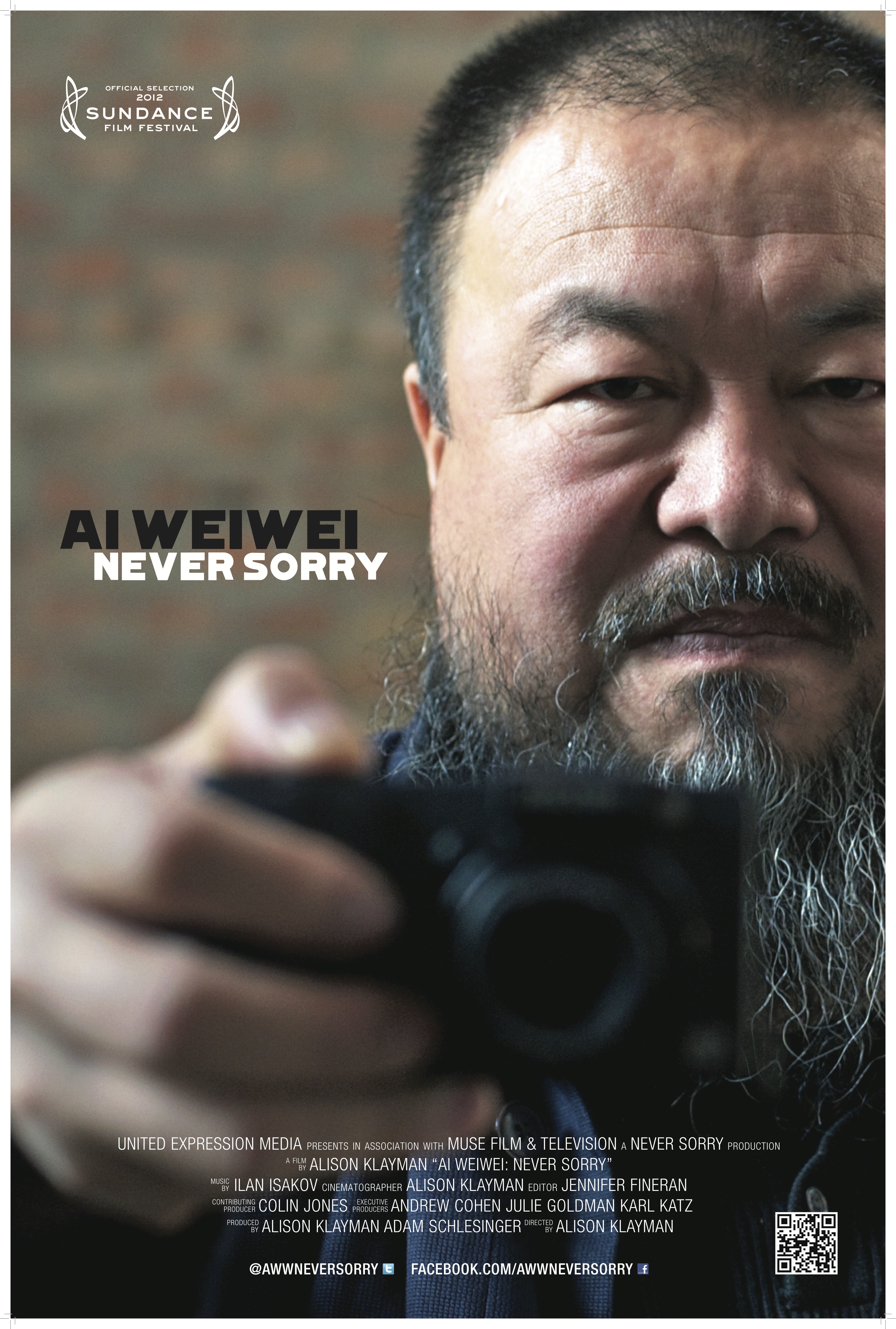'Ai Weiwei: Never Sorry' paints story of Chinese artist and activist who refuses to stay silent

Courtesy of IFC Films
By Michael Palumbo
Aug. 5, 2012 3:35 p.m.
Ai Weiwei: Never Sorry
Directed by Alison Klayman
IFC Films
![]()
![]()
![]()
![]()
First time documentary filmmaker Alison Klayman explores and examines the life and art of prolific Chinese artist and activist Ai Weiwei in the Sundance Special Jury Prize-winning film, “Ai Weiwei: Never Sorry.” The film chronicles Ai Weiwei’s art and political activism, from helping construct the Bird’s Nest Olympic Stadium for the 2008 Beijing Olympics to his 81-day detainment by Chinese officials in 2011.
Klayman’s film is insightful and compelling. It offers surprisingly candid moments with the artist throughout the film, from consoling his mother who is concerned that the Chinese officials will harm him to a quaint moment where we see him eating with his 1-year-old son.
Through a string of personal interviews with Weiwei and other prominent art critics and bloggers from around the world, the documentary tracks Weiwei and explores his inspiration, his struggles with the Chinese government and his reasoning for continually subverting and questioning Chinese government with his art.
The movie shows that this man, named the runner-up for TIME Magazine’s Person of the Year in 2011, is more than an artist.
The film offers glimpses of the tensions between Weiwei and the Chinese government, including an incident where Weiwei gets assaulted by a police officer and subsequently has brain surgery. However, it is the moments where Weiwei openly rejects his lawsuit claims or notices the Chinese police watching him as he is eating dinner that give true insight as to the social, political and cultural context that Weiwei is forced to fight against. It’s jarring, raw, and it forces the viewer to understand the complexities and anxieties of artists like Weiwei living in China.
Weiwei’s contemporary art is meant to shock and discomfort his audience, and like the film title suggests, he is an artist who continually voices his opinions despite the repercussions. In many ways it’s inspiring to watch how a single artist can capture and challenge an entire government to the point that he is deemed a threat.
The film also captures how this is possible with the advent of social media, and how art is changing to influence contemporary audiences in a new way. Throughout the movie there are clips of Weiwei’s personal and political tweets, most of them in response to the unfair censorship he is constantly faced with.
Klayman also tracks him as a he goes on a personal endeavor to find the names of all the schoolchildren who died, and with the help of his blog and Twitter, shows how he was able to solicit support and volunteers to aid him. He eventually made an installation out of backpacks to commemorate all the schoolchildren that died in the Sichuan earthquake partly because of poorly built government schools.
While most of the documentary shows Weiwei responding to interviewers, the rest of the film is shot with a single camera following him, providing a raw feel that drives the excitement and tension of certain scenes, like when the cameraman films a cop who is filming Weiwei having dinner. The camerawork creates the sensation of being in the moment with Weiwei, which in a way brings the audience closer to this figure, especially in the more poignant moments with his mother.
The movie ends on a somber note that provides a disturbing lack of closure for this artist who is consistently silenced and pressured by his own government. The documentary is as unapologetic as the subject, and the result is surprisingly thought-provoking.
Klayman wants the audience to sympathize with this figure, someone who has so much artistic and political ambition yet at the mercy of a government who refuses to listen. Fortunately the movie can convey Weiwei’s plea for free expression and political change to the world, even if he can’t himself.

